Private APN
Dedicated, secure network with a private APN.
The service consists in isolating from T-Mobile resources a subnet for a single client, enabling secure data transmission between terminals (phones or other devices equipped with SIM cards) and setting up its connection with the corporate network so that mobile devices can use its resources (applications, files, printers).
Private APN uses available in T-Mobile data transmission technology such as GPRS, EDGE, UMTS, HSPA, LTE. All of those technologies are based on IP protocol, so allow to use TCP/IP protocols. Private APN service also allows to use subnets named APN. APN is identified by its name and consist of information about IP address and routing (direction of data transmission flow from particular APN). Each customer of service Private APN has its own, dedicated subnet created on network carrier’s platform.
Functionally, such a solution corresponds to VPNs known from classic LANs based on Ethernet – at the IP layer only terminals working within a given APN and/or the standard output (default gateway) are visible to each other.


Operating principle

Service variants
In each of the service variants IP addresses for devices will be assigned by the GPRS network from a pool of non-routable addresses in two possible ways:
Billing models
We offer two billing models for data traffic in APNs:
"per APN" and "per SIM"
Optional services
-
DHCP
Possibility of integrating the Client’s DHCP server with the Private APN.
-
DNS
Possibility of integrating the Client’s DNS server with a Private APN.
-
Blocking traffic between terminals
Ability to block data transmission between individual terminals connected to the APN.
-
Trusted account
In case of more than one number of customers wanted to use a single Private APN, it is necessary to mark additional accounts as “trusted accounts”.
-
IP addressing according to customer requirements
Terminals working in the APN can use addresses assigned by the Customer.
-
RADIUS
Possibility to use an authentication solution based on the RADIUS server at the Client’s site.




